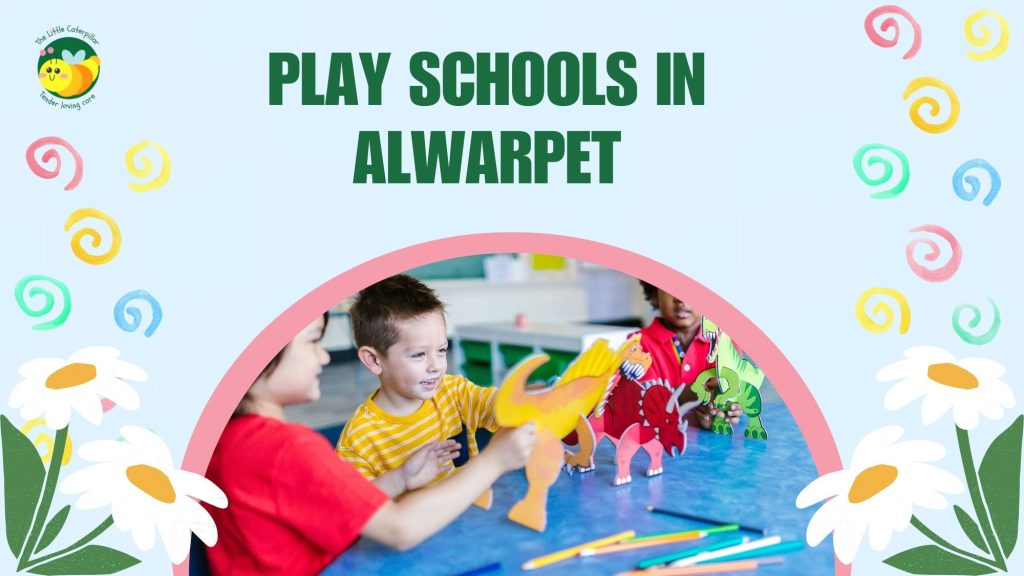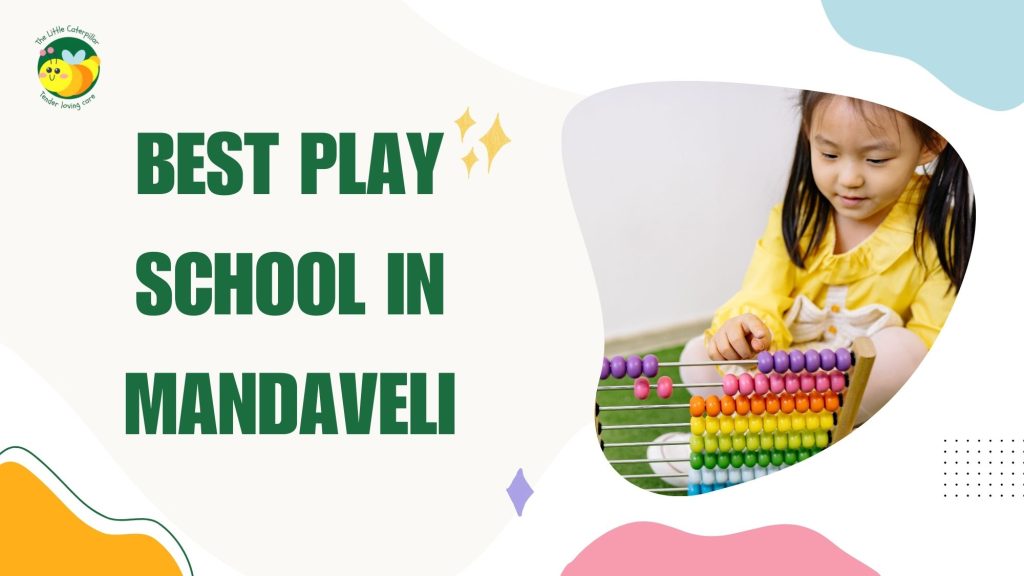Table of Contents
Introduction
In the dynamic landscape of early childhood education, playschools that integrate the principles of Montessori and Reggio Emilia with an Indian touch play a crucial role in shaping the future generation. These educational philosophies emphasize child-centered learning, respect for individuality, and the nurturing of empathy and compassion—values essential for children to thrive in a globalized and culturally diverse world. This essay explores why such playschools are vital today, examining their philosophical foundations, practical applications, and the cultural significance of integrating Indian values.
Montessori and Reggio Emilia: Philosophical Foundations
Montessori Approach
Dr. Maria Montessori’s educational approach emphasizes:
- Child-Led Learning: Children are viewed as naturally curious and capable of directing their own learning within a prepared environment.
- Hands-On Learning: Use of specially designed Montessori materials that promote sensory exploration and cognitive development.
- Respect for Individuality: Each child’s unique pace and style of learning are respected, fostering independence and self-confidence.
Reggio Emilia Approach
Originating in Italy, the Reggio Emilia approach highlights:
- Child as Protagonist: Children are active participants in constructing their learning experiences through exploration and discovery.
- Collaboration and Community: Emphasis on collaboration among children, educators, and parents, fostering a sense of community and shared responsibility.
- The Role of Environment: The physical environment is considered a catalyst for learning, designed to provoke curiosity and reflection.
Integration of Indian Touch
Cultural Relevance and Values
- Compassion and Kindness: Core values in Indian culture such as ‘ahimsa’ (non-violence) and ‘karuna’ (compassion) are integrated into daily practices and storytelling.
- Spirituality and Mindfulness: Practices like yoga and meditation are incorporated to promote emotional well-being and self-awareness.
- Celebration of Diversity: Festivals like Diwali, Eid, and Holi are celebrated, fostering understanding and respect for cultural diversity among children.
Importance of Such Playschools in Today’s World
Cognitive Development and Academic Preparation
Playschools inspired by Montessori and Reggio Emilia methods prioritize hands-on, experiential learning, which has been shown to enhance cognitive development, problem-solving skills, and academic readiness (Lillard, 2013).
Social and Emotional Development
These approaches emphasize the development of empathy, cooperation, and communication skills—critical for building positive relationships and navigating social interactions effectively (Gestwicki, 2016).
Cultural Sensitivity and Global Citizenship
In an increasingly interconnected world, exposure to diverse cultural perspectives from a young age fosters respect, empathy, and an appreciation for global citizenship (Kohlberg, 1984).
Preparation for Future Success
Skills such as independence, resilience, and creative thinking cultivated in playschools aligned with Montessori and Reggio Emilia principles prepare children to adapt to the complexities of an ever-changing world (Csikszentmihalyi & Rathunde, 1993).
Practical Applications and Implementation
Design of Learning Environments
Playschool environments are carefully curated to stimulate curiosity and creativity, integrating natural materials, open-ended toys, and spaces for artistic expression.
Curriculum Development
Curricula are flexible and responsive to children’s interests, incorporating thematic units inspired by Indian culture and global themes to promote interdisciplinary learning.
Teacher Training and Professional Development
Educators are trained in the philosophical underpinnings of Montessori and Reggio Emilia approaches, as well as culturally responsive teaching practices to create inclusive and supportive learning environments (Bredekamp & Copple, 2009).
Challenges and Considerations
Resource Allocation
Ensuring access to adequate resources and materials aligned with Montessori and Reggio Emilia philosophies can be a challenge, particularly in resource-constrained settings.
Parental Engagement and Community Support
Building partnerships with parents and communities to support children’s holistic development and reinforce educational values at home.
Conclusion
In conclusion, playschools inspired by Montessori and Reggio Emilia with an Indian touch are indispensable in preparing children for the complexities of the 21st century. By fostering a nurturing, child-centered environment rooted in cultural values, these educational institutions promote not only academic excellence but also social-emotional development, cultural sensitivity, and global citizenship. As we navigate an increasingly interconnected and diverse world, the importance of early childhood education that values empathy, respect, and individuality cannot be overstated.
References
- Bredekamp, S., & Copple, C. (Eds.). (2009). Developmentally appropriate practice in early childhood programs serving children from birth through age 8. National Association for the Education of Young Children.
- Csikszentmihalyi, M., & Rathunde, K. (1993). The measurement of flow in everyday life: Toward a theory of emergent motivation. Nebraska Symposium on motivation, 1992, 57-97.
- Gestwicki, C. (2016). Developmentally appropriate practice: Curriculum and development in early education (6th ed.). Cengage Learning.
- Kohlberg, L. (1984). The psychology of moral development: The nature and validity of moral stages. Harper & Row.
- Lillard, A. S. (2013). Montessori: The science behind the genius. Oxford University Press.




